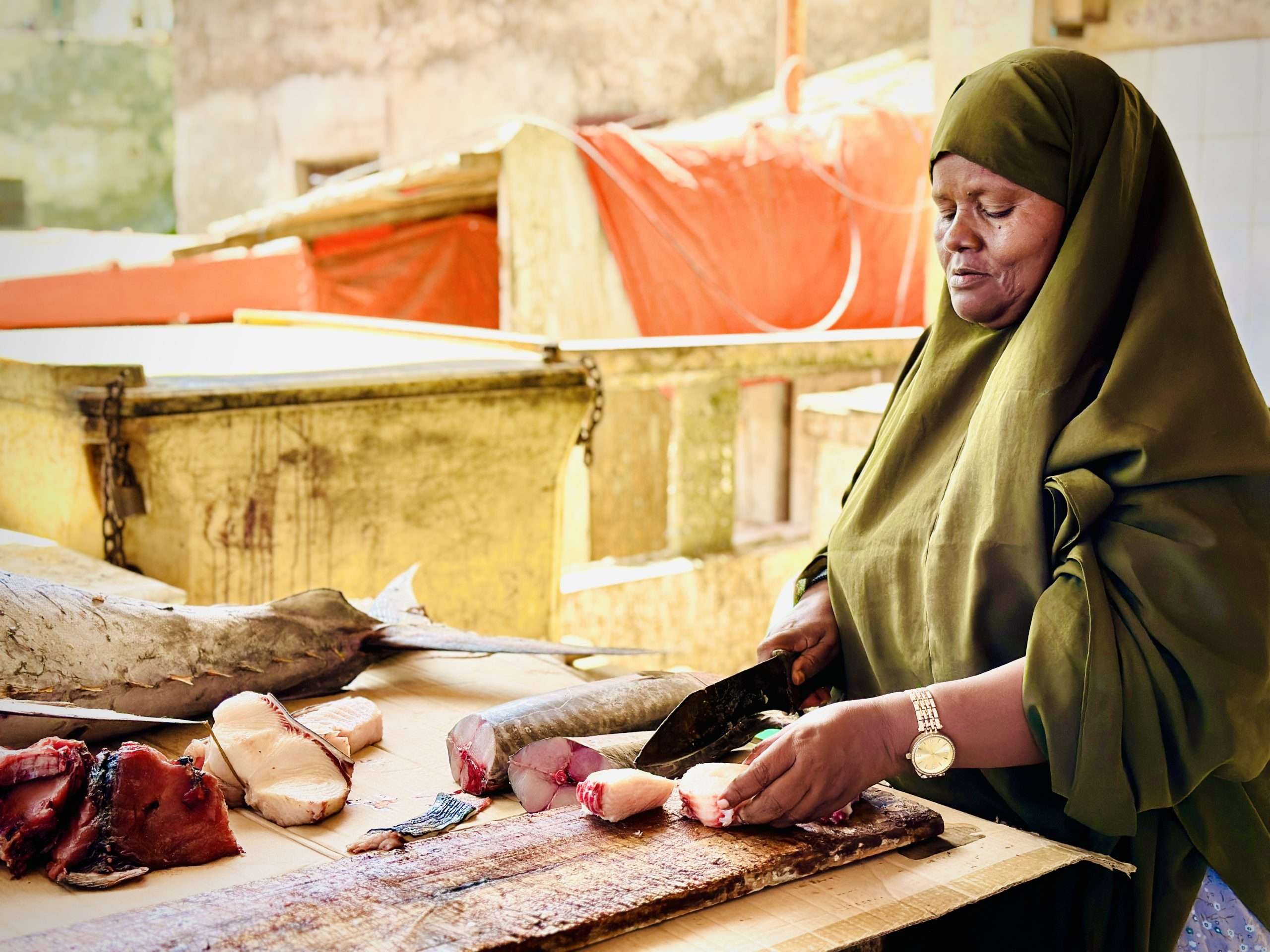
In Somalia, women play a critical role in the fisheries sector. However, they often have limited access to the business opportunities and financial resources needed to grow their businesses. Banks and microfinance institutions in Somalia unfairly perceive women owned-enterprises as having a high risk profile, meaning women are often left behind in the economic sector.
Hodan Ali Muse, 49, is a mother of nine who had been working in the fisheries sector for years. Despite many applications, she was denied loans due to lack of collateral and limited financial transaction history. Without access to financial services, Hodan couldn’t grow her business or set up other streams of revenue to help sustainably support her family.
“I was denied loan applications on numerous occasions, because of the perceived risks associated with women in the fisheries sector,” said Hodan.
USAID’s Inclusive Resilience in Somalia (IRiS) Program recognizes the important role of women in the fisheries sector and the need to increase their ability to thrive and grow. Jointly funded by USAID and the United Kingdom’s Foreign Foreign, Commonwealth & Development Office, IRiS accelerates economic development for marginalized households with a focus on climate-resilient agriculture, urban integration of displaced persons, and private sector expansion.
USAID IRiS partnered with RAAS, a local microfinance institution, to empower women like Hodan to access financial resources. USAID IRiS and RAAS designed non-collateral based loans which targeted women-led Village Savings and Loan Associations. These associations provide loans to women-owned businesses — like Hodan’s — which are largely rejected by banks in Somalia.
USAID IRiS’s approach focuses not only on access to finance, but on livelihood diversification and promoting inclusive economic market systems. Hodan accessed a loan of $700 that boosted her working capital to source and sell more fish. She was able to multiply her income, expanded her shop and diversified her ways to bring in income. “I was able to buy new iceboxes, pay rent, and invest in fresh fish stock. I also expanded the shop and I rent out the extra space for additional income,” Hodan said. “Before the project, I used to make $5. Now, I have a daily income of about $35.”
With these goals in mind, USAID IRiS wants to expand fish exports to diverse markets, creating economic opportunities for marginalized groups (including women) and position Somalia as a competitive player in the global fish industry. The program has provided $95,600 in matching grants (with RAAS contributing $111,200) to reach more women in business like Hodan. Next, USAID IRiS plans to extend nearly $500,000 in flexible credit to 480 women-owned businesses across Somalia.